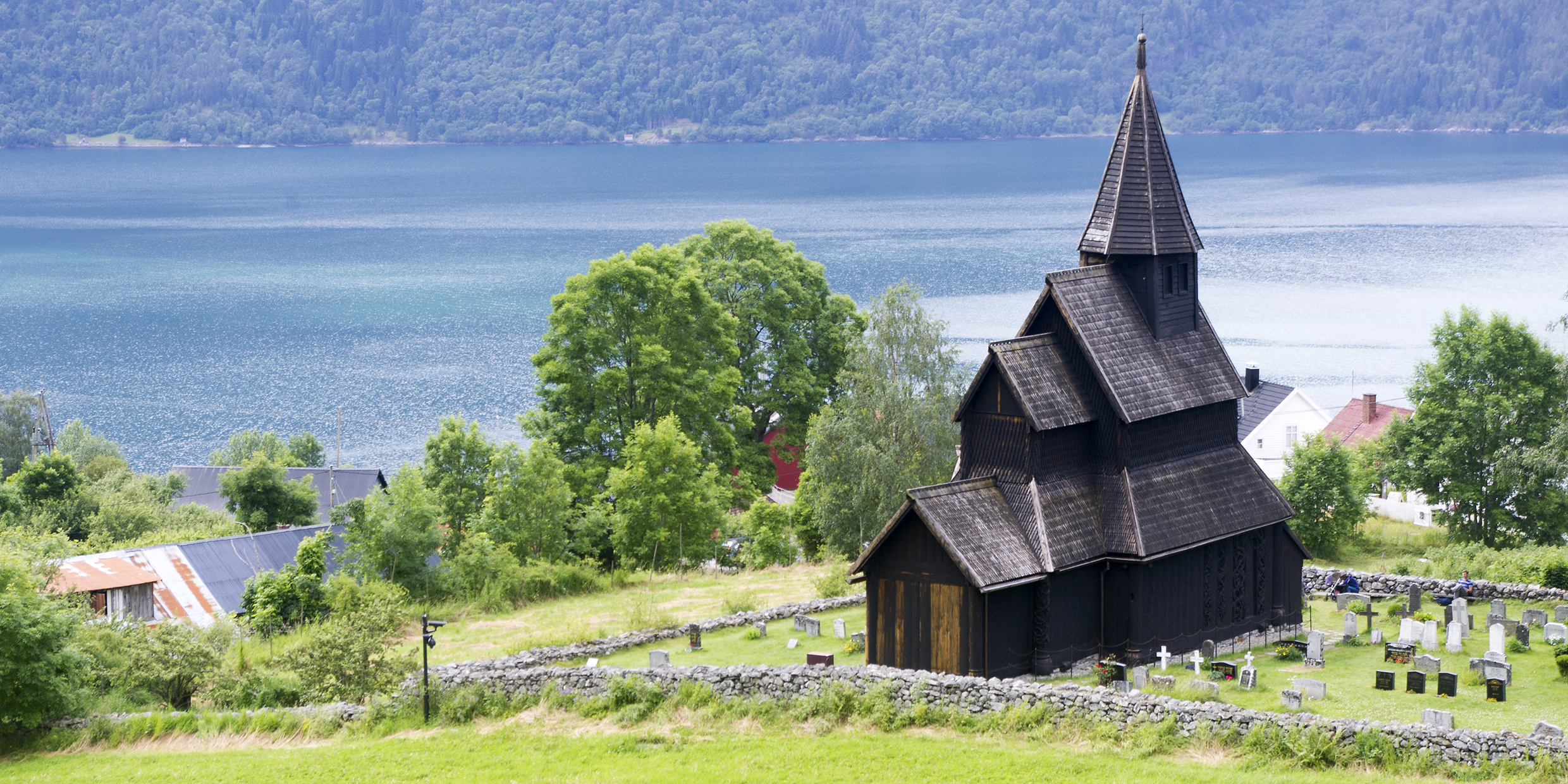Originally published 27 November 2005
A week or so ago I tried to articulate something of my religious faith in a blog post called Credo. I listed some of the authors within the Roman Catholic tradition who had influenced my spiritual evolution. Among them was the Norwegian writer Sigrid Undset.
Undset is best known as the author of the epic novel of medieval Norway, Kristin Lavransdatter, which won the Nobel Prize for literature in 1928. It would be difficult to summarize the theme of the novel in a few words, but this would come close: The transforming power of the holy. The holy, for Undset, resides in individuals, not in nature, nor in institutions. It is the individual’s capacity to love and suffer unselfishly — in spite of, or perhaps because of, his or her imperfections — that redeems a world broken by sin.
Undset was raised an agnostic, but at the age of 42 she was received into the Roman Catholic Church. The first volume of Kristen Lavransdatter was published four years before her communion with the Church and foreshadows her conversion. It is a profoundly Catholic novel, part of that wonderful brew of Catholic literature — Bernanos, Bloy, Peguy, Mauriac, Greene, etc. — that fed the spirits of young Catholic intellectuals in the 1950s. Certainly it influenced the direction of my own life.
I have just finished reading a shorter and less well-known novel by Undset: Gunnar’s Daughter. The story is set around the year 1000 (four centuries before Kristin’s time), as Christianity was just infiltrating the pagan north. We are permitted to witness the clash of two world views, the one grounded in flesh, blood, and iron, a polytheistic faith of dark northern forests, the other a softer more otherworldly monotheism of the hot, sunny south.
Briefly, the story is this: The Icelander Ljot and the Norwegian Vigdis meet as youths and fall in love. Tenderness is shattered when Ljot ravishes Vigdis in a fit of passion. Their lives diverge but their fates are sealed. Vigdis cannot forgive Ljot’s transgression and nurses a fierce hated for him that springs from an equally fierce love betrayed. Ljot cannot forgive himself. Stubbornness and remorse turn what might have been a happy ending into unmitigated tragedy.
Young Ljot and Vigdis were raised in the milieu of Viking paganism, in which the bravest and strongest are honored and the weak are expendable. Violated honor unleashes bloody cascades of revenge, sometimes spanning many generations. Children are loved, but die with tragic regularity. Fidelity to kith and kin are visceral and tightly hemmed. Happiness is caught on the fly, when it can be caught at all.
Then comes Christianity with its instruction to turn the other cheek, to care for the weak, to love the stranger as one’s self. Daily life is structured by a rubric of feast, fasting, and prayer. For the first time, Norway is united under one king — Saint Olav — and one law. Damaged or unwanted children are no longer exposed. Wives are no longer put away at will. Viking rapine and pillage are reserved for heathens and infidels.
Vigdis embraces Christianity but it makes her no happier than does Ljot’s paganism, and Ljot’s paganism makes him no less a good person than does Vigdis’s Christianity. With the coming of the Christian faith, one set of intolerances is replaced by another. In both worlds — the pagan and the Christian — good and evil clash, and people struggle to find love and meet their material needs. In both worlds, the holy occasionally blazes out with transforming power and effect.
For Undset, of course, the holy is a manifestation of God’s providence, and Christian sanctity is a pearl beyond price. “All men more or less are moral cripples,” she writes in an essay. “But only when we are good in the way in which God is good, are we good enough.”
Undset writes within a context of Original Sin, from which we are saved by Christ’s redemptive action — all of which is a theological way of explaining what we now at least partly understand through evolutionary biology.
Natural selection is red in tooth and claw, sometimes gruesomely so. Death is the evolutionary engine of complexification. Humans have inherited that propensity for violence, especially, it seems, through the male chromosome. But violence and “get mine” are not the only biological strategies for evolutionary success. It seems likely that we have also inherited altruistic genes that incline us towards the care of children, kin, and neighbors. We see these opposing innate behaviors — violence and altruism — powerfully at work in Undset’s medieval novels.
But our behaviors are not only the product of biological evolution. Cultural evolution takes up where the genes leave off, and thus we have, for example, the teachings of the Buddha or of Christ. This conflict too — the Sermon on the Mount, say, versus the selfish gene — are at work in Undset’s novels.
One need not accept Sigrid Undset’s theology to learn important truths about human nature from her medieval tales. By taking us back to a time when love, family, childbirth, sexual passion, bloodlust, greed, and death were more starkly rendered by the mere struggle to survive, she forces us to reflect upon our own reasons for being faithful and good.
We are not born moral cripples, as Undset supposes. We are born — as Ljot and Vigdis were born — with a mixed tangle of genetic predispositions. The great cultural project for people of good faith everywhere — theistic and secular humanist — is to incline our biological proclivities toward the greatest good for all. That means first of all understanding our own passions — good and bad — and, for that, the medieval novels of Sigrid Undset are particularly illuminating.



